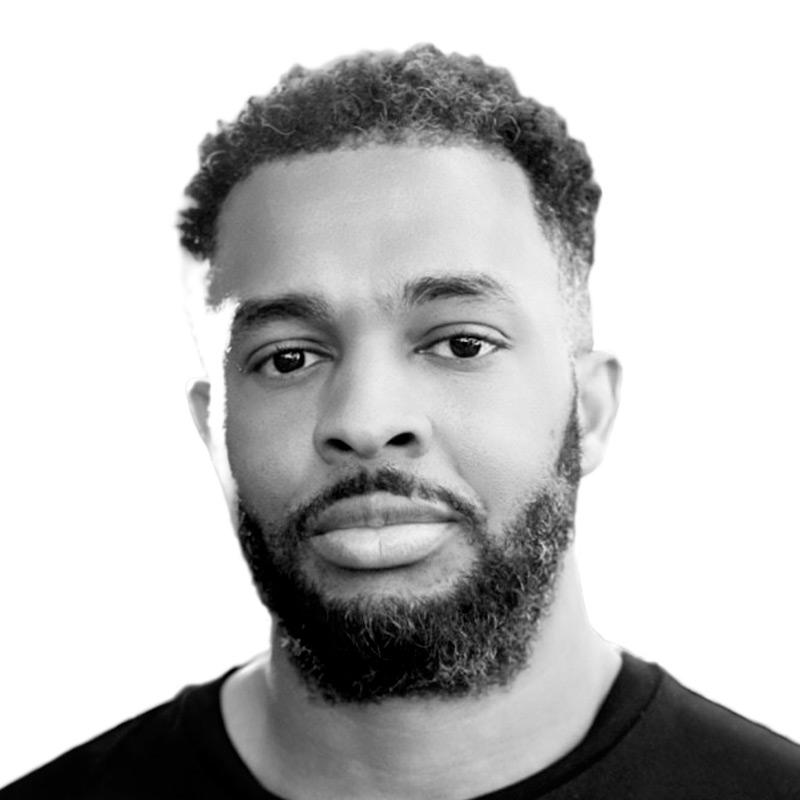Last week, about midway through Democratic Senator Kirsten Gillibrand’s monthly “Call Your Senator” segment with WNYC host Brian Lehrer—a sometimes dry affair that rarely makes headlines—a listener named Gabe in Jersey City called into the show.
Gabe wanted to talk about Zohran Mamdani, the previously little-known state lawmaker who’d stunned former New York governor Andrew Cuomo in the Democratic mayoral primary of New York City. Mamdani’s victory last Tuesday clinched his spot in the November general election, when he will face embattled incumbent Eric Adams, a former Democrat now running as an independent candidate; long-shot Republican nominee Curtis Sliwa; and maybe Cuomo again—but as an independent.
The prospect of Mamdani having real political power worried Gabe, who said that the 33-year-old Muslim candidate and democratic socialist was among the “threats facing the Jewish community.”
“Also, how can we hold Mr. Mamdani accountable for his glorifying association of Hamas and other terror bombings of the intifada in 1990s?” Gabe asked. “It's quite despicable. I'm sorry.”
“There's a lot in there, Senator, some of which may be inaccurate. I don't know. I can't fact-check everything in real time,” Lehrer said, pivoting to Gillibrand.
Gillibrand, who earlier in the show had declined to endorse Mamdani, did not use this opportunity to soften the heated—and sometimes defamatory—rhetoric that’s been deployed against the Democratic nominee. Instead, the senator called on Mamdani to reassure members of the largest Jewish community in the world outside Israel that he was no threat to them.
“The caller is exactly the New York constituents that I've spoken to that are alarmed,” she said. “They are alarmed by past public statements. They are alarmed by past positions, particularly references to global jihad.”
Gillibrand and Gabe were seemingly referring to a highly scrutinized moment in a recent interview between Mamdani and Tim Miller, a former Republican strategist who now hosts a podcast at The Bulwark. Miller asked Mamdani whether he supported the phrase “globalize the intifada,” which many Palestinians and their supporters claim is a rallying cry for anti-Zionist resistance while some Jews have labeled it a call to antisemitic violence. It’s not a phrase Mamdani is known to have used himself.
Nonetheless, Mamdani declined to condemn it, instead saying that the phrase spoke to “a desperate desire for equality and equal rights in standing up for Palestinian human rights.” He also validated concerns about rising antisemitic sentiment globally and said that he would fight against that if he were elected mayor, pledging more funding for “anti–hate crime programming.”
A day after she appeared on The Brian Lehrer Show, Gillibrand’s office walked back her suggestion that Mamdani had supported “global jihad,” but the implication was already clear: that Mamdani would be treated with suspicion, rather than support, even by members of his own party.
That Bulwark interview and the fallout from it weren’t enough to hurt Mamdani in the Democratic primary, but it’s all part of a well-worn American practice of isolating and othering Muslim politicians.
Democratic Representative Ilhan Omar of Minnesota has faced many hundreds of threats, including threats on her life, since she first took office in 2019, and President Donald Trump once tweeted that Omar and the other three members of a progressive congressional group known as the Squad should “go back” to “the places from which they came.” A Minnesota Republican Party congressional district page once published a Facebook post referring to then–Democratic Representative Keith Ellison, the first Muslim lawmaker ever elected to Congress, as “Head Muslim Goat Humper.” In September, the conservative magazine National Review published a cartoon showing Democratic Representative Rashida Tlaib of Michigan with an exploding pager—a reference to attacks against Hezbollah members by Israel.
In New York, Mamdani’s campaign has already increased his security detail because of threats, and they are all but guaranteed to continue through the election in November.
Mamdani’s victory in the Democratic primary last week has turned a local election into a national news story, provoking heated reactions and commentary from across the political spectrum. His progressive politics and irrepressible charisma captivated young supporters and disaffected establishment Democratic voters, while his Muslim faith and unyielding criticism of Israel’s actions in Gaza have stoked old fears and prejudices—on both the right and left—about who is fit for public service in America.
“It’s a pattern throughout American history,” said Corey Saylor, research and advocacy director at the Council on American-Islamic Relations. “Unfortunately, too often, political events trigger waves of Islamophobia.”
Mamdani’s surprise win last Tuesday was seemingly the latest inflection point, unleashing a torrent of anti-Muslim hysteria about his groundbreaking candidacy. Saylor said that in 2022, the council recorded the first drop in complaints about Islamophobia in the U.S. in more than a quarter century. But since then, the numbers have shot right back up. “We’ve been in a wave for a while,” he said. “I anticipate that we will continue to see a spike in anti-Muslim sentiment.”
Many right-wing elected officials and their supporters are turning to an increasingly unrestrained social media environment to amplify lies and make defamatory statements about Muslims in general, and Mamdani in particular, go viral.
On Monday, Republican Representative Brandon Gill of Texas tweeted, “Civilized people in America don’t eat like this,” in response to a video of Mamdani eating rice with his hands. “If you refuse to adopt Western customs, go back to the Third World.” Far-right activist Laura Loomer—one of President Trump’s close companions and advisers—also responded to the video, calling it “disgusting.” Loomer has also spread a number of lies about Mamdani to her followers, including that he is a jihadist and that “Sharia Law is coming.”
A day before Gillibrand’s comments on The Brian Lehrer Show, Republican Representative Marjorie Taylor Greene of Georgia—who has a history of making Islamophobic remarks—posted an image of the Statue of Liberty in a burqa. She captioned the picture: “This hits hard.” The next day, Republican Representative Andy Ogles of Tennessee called for Mamdani to be deported, said that Mamdani supported terrorism, and declared that the mayoral nominee was an “antisemitic, socialist, communist who will destroy the great City of New York.” The call to have Mamdani deported was echoed by Republican New York City Councilwoman Vickie Paladino, who in a radio interview referred to him as a “known jihadist terrorist.”
The calls for deportation aren’t necessarily an idle threat in a time when the Trump administration has directed Justice Department attorneys to prioritize denaturalization for citizens who commit certain crimes. The administration’s memo allows for wide discretion about when to pursue these cases, and Mamdani is a naturalized citizen who was born in Uganda and moved to New York at age 7. He became a U.S. citizen in 2018. It’s not hard to imagine the Trump administration attempting to make an example of him, and already Trump has indicated that he’ll be looking to retaliate if Mamdani pursues any of the progressive policies he’s promised to implement as mayor. On Tuesday, Trump told reporters on the White House South Lawn that New Yorkers would be “crazy” to vote for Mamdani. Trump made it clear that he would seek to undercut Mamdani and his administration if he wins in November. “I think we’re gonna have a lot of fun with him because he has to go right through this building to get his money,” Trump said. “Don’t worry, he’s not gonna run away with anything.”
But it’s not just the right that’s been attacking Mamdani. Similarly demeaning rhetoric has also come from the left, where attacks have centered on the division between Democrats who support Israel’s war in Gaza and those who support the Palestinian protest movement. Cuomo, not surprisingly, used the controversy over Mamdani’s refusal to condemn the phrase “globalize the intifada” to say that those words “fuel hate” and “fuel murder.” Days before the primary, New York Democratic state senator Sam Sutton posted a video message from a bomb shelter in Jerusalem as Israel and Iran exchanged fire. “We don’t want to be in a situation like this in America,” Sutton said. He then asked voters to choose Cuomo, whom he called “a great friend of the Jewish people.” The implication, of course, was that Mamdani is not.
Mamdani has consistently called Israel’s actions in Gaza a “genocide” and joined a five-day hunger strike outside the White House in December 2023 calling for a ceasefire. Mamdani also separated himself from his rivals in the primary early, as most other candidates pledged to visit Israel during a debate and he responded that he would not visit any foreign country if he won the election. That gave moderators and other challengers the opportunity to ask Mamdani whether he recognizes Israel’s “right to exist.”
Mamdani said he believed “that Israel has a right to exist as a state with equal rights.” Cuomo pounced, saying: “He said he won’t visit Israel!”
That sort of divisiveness, even shutting any attempt at even offering a different perspective on Palestine, has long been a source of frustration for Mamdani and other Muslim politicians who are seeking to carve out a place for themselves in the Democratic Party. To deviate from the party line is to risk being labeled a terrorist sympathizer—or worse.
“Democrats have often fed the same narratives,” Saylor said, “but in nicer ways.”
Despite the internal dissension within the Democratic Party, Mamdani has remained consistent and principled about his stance on the conflict in Israel. And, in many ways, it’s put him on the same wavelength as an increasing number of voters. A Quinnipiac University poll released earlier this month found that support for Israelis was at an “all-time low” and at “an all-time high for the Palestinians.” Among Democrats, 60 percent said that their sympathies were with the Palestinians, while 12 percent said that they were with the Israelis.
Given those numbers, it’s not a surprise that Mamdani rolled to an easier than expected win over Cuomo and the rest of the Democratic challengers.
And it’s also worth noting that Mamdani’s broad base of support in the primary includes many thousands of Jewish voters. Notable among that group is Brad Lander, who as comptroller is the city’s highest-ranking Jewish official. Lander cross endorsed Mamdani in the primary and has vigorously supported him since the election. “We are not going to let anyone divide Muslim New Yorkers and Jewish New Yorkers,” Lander said at his election night party.
No matter the calls for unity, the attacks on Mamdani aren’t going to stop. In fact, they’re likely to increase in number and intensity as he stands poised to become the first Muslim mayor in New York City history.
And a couple of weeks ago, in a brief, unguarded moment, Mamdani revealed how much those attacks have already hurt him and his supporters.
“It pains me to be painted as if I’m somehow in opposition to the very Jewish New Yorkers that I know and love,” Mamdani said, tears coming to his eyes. “I get messages that say the only good Muslim is a dead Muslim. I get threats on my life—on the people that I love.”
Three years ago, when Mamdani was running unopposed to reclaim his seat in the New York State Assembly, he was part of an unprecedented wave of Muslim candidates who were voted into office across the country. It was seen as a major inflection point in the post–September 11 era, a sign that Muslims were finally being welcomed into America’s halls of political power. “The trend has been that more Muslims are stepping up for public service each year,” Saylor said.
But there are drawbacks to that ambition, as Mamdani’s campaign has already shown. If Mamdani wins in November, he’ll be facing a Republican Party that is increasingly hostile to Muslim immigrants, skeptical members of his own party who support Israel, wealthy power brokers who are threatened by his progressive platform and socialist affiliation, and likely opposition from the largest and most powerful police department in the country.
The early anti-Muslim animosity directed at Mamdani before he even takes office shows that the hateful politics of 9/11 are still very much near the surface in this country, from the lies that President Barack Obama was a secret Muslim to the backlash against a proposed Muslim community center on Manhattan’s Upper West Side that some referred to as a “ground zero mosque.”
A Mamdani victory in spite of all of the smears would be a promising sign of their waning potency. But, to be certain, for some, it would be yet another call for organized obstruction.


